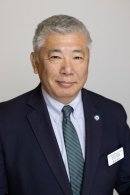Specific course selection and length of time to prepare for transfer depends upon each student's background, individual program requirements, student ability and specific course offerings each quarter. It is strongly advised that students make contact early with faculty at Saint Martin's University to ensure that there is complete understanding as to what is required of the student.
Hal and Inge Marcus School of Engineering
Housed under the College of Business, Engineering and Technology, The Hal and Inge Marcus School of Engineering seeks to provide our graduates with an education that will prepare them for successful careers in engineering practice and serve as preparation for advanced graduate studies, all while keeping with our Benedictine tradition as the guiding principle.
- engineering@stmartin.edu
- 360-688-2731
Cebula 102


